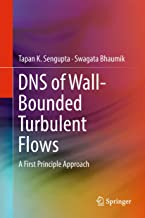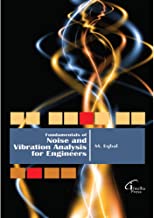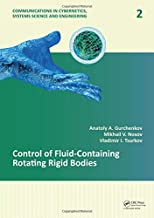DNS of Wall-Bounded Tubulent Flows: A First Principle Approach
Original price was: ₹8,324.08.₹6,659.26Current price is: ₹6,659.26.
ISBN: 9789811300370
Author/Editor: Tapan K Sengupta
Publisher: Springer
Year: 2018
2 in stock (can be backordered)
Description
This book highlights by careful documentation of developments what led to tracking the growth of deterministic disturbances inside the shear layer from receptivity to fully developed turbulent flow stages. Associated theoretical and numerical developments are addressed from basic level so that an uninitiated reader can also follow the materials which lead to the solution of a long-standing problem.
Solving Navier-Stokes equation by direct numerical simulation (DNS) from the first principle has been considered as one of the most challenging problems of understanding what causes transition to turbulence. Therefore, this book is a very useful addition to advanced CFD and advanced fluid mechanics courses
Product Properties
| Year of Publication | 2018 |
|---|---|
| Table of Contents | 1. Introduction:i) Deterministic study: Experimental and numerical approaches for receptivity / instability/ transitionii) Stochastic studies: Experimental and theoretical approaches to transition to turbulenceiii) Why linear and nonlinear approaches needed? iv) Obtaining equilibrium flow and its instability.v) Simulating transitional / turbulent flows by DNS and LES 2. DNS of Navier-Stokes Equation:i) Numerical methods for developing DNS/ LES codes with respect to numerical properties of model equations for: (a) convection equation; (b) convection-diffusion equation and (c) Taylor-Green vortex problem.ii) Error dynamics of various methods used in LES and DNS.iii) High accuracy compact schemes iv) Dispersion relation preservation (DRP) properties of numerical methodsv) Design of DRP schemes for DNS/LESvi) Numerical Filtering: Error control via stabilization, dealiasing etc. vii) Formulations of DNS: Various forms of governing equations and associated error metrics' behavior.viii) Details of (a) stream function-vorticity and (b) velocity-vorticity formulations for DNS/ LES of fluid flow and heat transfer. 3. Receptivity and Instability: i) Linear stability / receptivity theories: Classical approaches and Signal problem. ii) Solving stiff differential equations: compound matrix and implicit Runge-Kutta methodsiii) Ambiguities of spatial and temporal linear theories: Example of mixed convection problem. iv) Spatio-temporal approach: Bromwich contour integral method. v) Centrality of nonlinear and nonparallel effects: Solving receptivity problem by DNS. vi) Direct simulation of instability of mixed convection flows: New generic theorems of instability. 4. Analysis by different nonlinear theories for fluid flowsa. Theory based on total mechanical energy; Vortex -induced instabilityb. Enstrophy transport equation and its use in vorticity dynamicsc. Proper orthogonal decomposition (POD) based approach to study nonlinear/ linear instability. 5. 2D Turbulence: i) From linear theory to DNS of 2D turbulence via deterministic routes. ii) By-pass transition routes of transition to turbulence: Flow past NLF airfoil.iii) Excitation by periodic free-stream convecting vortices 6. 3D Routes to Turbulence:i) Experimental demonstration of 3D routes: K- and H-types of transition. ii) Computational evidences for (a) spanwise modulated excitation and (b) Gaussian circular patch excitationCharacterization of coherent vertical structures |
| Author | Tapan K Sengupta |
| ISBN/ISSN | 9789811300370 |
| Binding | Hardback |
| Edition | 1 |
| Publisher | Springer |
You must be logged in to post a review.






Reviews
There are no reviews yet.